CPAP Masks: Choosing the Right Mask for Effective Therapy

- Author: Craig Fox
Sleep apnea masks are important for treating sleep apnea, a common sleep disorder where breathing stops and starts during sleep. These masks, are crucial in keeping the airway open and ensuring uninterrupted breathing.
Sleep apnea patients have different options when it comes to CPAP masks. However, there are three main types of CPAP masks, and they come in various sizes.
Full Face Masks
Full face CPAP masks are designed to create a secure seal around both the nose and mouth. These masks are particularly suitable for individuals who breathe through their mouth and prefer not to use a nasal mask in conjunction with a chinstrap.
It is important to note that full face masks tend to be heavier and bulkier. There are several common scenarios in which a full face mask may be necessary:
- chronic sinus issues or allergies, which may prevent exclusive nasal breathing.
- if your mouth tends to open during sleep and utilizing a chinstrap with a nasal mask has proven ineffective.
While many individuals find full face masks favorable, a meta-analysis conducted in 2014 indicated that compliance levels may be lower compared to nasal or nasal pillow masks. If you discover that a full face mask is too bulky or unsuitable for your needs, consider transitioning to a nasal or nasal pillow mask as an alternative.
Nasal Masks
A nasal CPAP mask is designed to rest on the bridge of the nose, providing coverage for either the entire nose or the bottom half. It is typically secured in place by a four-point headgear that attaches to the frame. However, it’s important to note that some individuals may experience irritation on the bridge of the nose.
Nasal masks are widely favored due to their minimalist design. However, some people may encounter issues with unintentional mouth breathing, resulting in dryness of the mouth and throat. To mitigate this issue, individuals have the option of utilizing a chin strap to maintain mouth closure while sleeping.
Alternatively, individuals facing challenges with mouth breathing during sleep have the option to switch to a full face mask for a different approach. It is crucial to consider that individuals experiencing persistent nasal congestion, severe allergies, a deviated septum, or any other nasal obstruction may not be ideal candidates for nasal masks.
Nasal Pillow Masks
Nasal pillow CPAP masks create a seal at the base of the nostril, utilizing a cushion that rests in that area. This type of mask is considered the least invasive and offers a clear field of vision, making it suitable for activities like reading or watching TV. Men with facial hair may find the nasal pillow mask particularly appealing. The comfortable fit and minimalistic design of nasal pillow masks often result in higher compliance rates among users.
However, there are instances when a nasal pillow mask may not be the most suitable choice. If your prescribed pressure setting is higher or if you suffer from nasal allergies or chronic nasal obstruction, this type of mask may not be optimal for you.
Occasionally, some individuals may experience irritation at the opening of the nostril, both internally and externally. If you encounter discomfort of this nature, attempting a different-sized nasal pillow or incorporating a nasal moisturizer can aid in adjustment and alleviate the issue.

Discover Essential Accessories for Masks
CPAP therapy comes with a range of accessories that can enhance your device, hose, and mask setup. These accessories serve various purposes, from ensuring mask cleanliness to improving comfort and efficacy during therapy.
Mask Liners: Many CPAP masks and cushions are crafted from silicone, which can sometimes cause skin irritation. Mask liners act as fabric barriers, offering a softer surface against the skin. These washable liners are specifically designed to maintain mask hygiene and provide a more comfortable experience.
VCom: V-Com is an innovative accessory for PAP therapy that revolutionizes the user experience. This groundbreaking accessory works to both soften inspiratory air pressure and minimize machine noise, all while maintaining the essential benefits of expiratory positive airway pressure (EPAP). In simple terms, V-Com enhances comfort without compromising the efficacy of your prescribed sleep apnea treatment.
Chinstraps: Nasal pillow or mask users often need to keep their mouths closed for effective CPAP therapy. Chinstraps come to the rescue by securely wrapping around or behind the head, keeping the mouth in a closed position. Crafted from different materials, these chinstraps are engineered for optimal comfort during sleep.
CPAP Pillows: Specially designed CPAP pillows aim to support your head and neck without interfering with the placement of your mask. These pillows incorporate unique features such as cutouts or curves to accommodate the mask comfortably. Side and stomach sleepers, in particular, can benefit from the use of CPAP pillows.
Discovering and utilizing these CPAP accessories can significantly enhance your overall therapy experience, ensuring cleanliness, comfort, and effective treatment.

Conclusion
While the three main types of CPAP masks mentioned earlier are commonly prescribed to treat sleep apnea, it is important to acknowledge that they are not the only options available. In less frequent cases, alternative types of CPAP masks may be prescribed based on individual needs. These less commonly used masks include total face masks, which cover the entire face, oral masks, which specifically cover the mouth, and hybrid masks, which offer combinations of the aforementioned CPAP mask styles.
The choice of mask type may depend on the severity of the individual’s condition, and it is possible for healthcare professionals to recommend one of these alternative masks if deemed necessary. However, it is essential to note that these mask variations are not as commonly utilized as the three types mentioned previously.
Ready to get started?
Optimize and improve your sleep apnea treatment with V-ComTM, no prescription required!
30 Day Money-Back Guarantee
